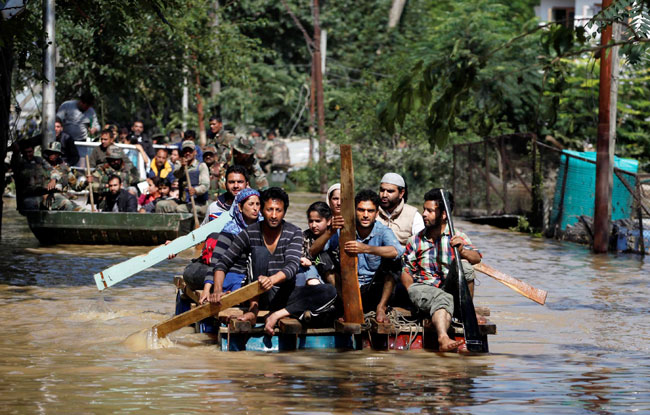
Dear Minister,
The number of disasters over the world is increasing year by year. These disasters include both natural calamities as well as human-made conflicts that take millions of lives every year and cause huge damage to property and livelihood. The deaths occur predominantlyin the poor countries.
Jammu and Kashmir state, due to its geographical locations and formations is a multi-hazard prone region and has higher to very high risk of natural disasters like earthquakes, floods, landslides, avalanches, snow storms, besides manmade disasters including fatal road accidents and fires always ready to hit it. Moreover, the J&K state falls in the seismic zone’s IV and V,awarningthat seeks an immediate attention.
Disasters are huge economic burden on developing economies such as Jammu and Kashmir. Hence, it has become essential that the basic disaster management skills are imparted to public in general and to the younger generation at the early stages of childhood, especially to thestudents in schools and colleges, all over the state. This can be achieved by including disaster management subjectin the formal curriculum. Ithas been seen that many countries have just started to implement the disaster management subjectin their school boards, Jammu and Kashmir government can set an example by formally implementing the same to raise pubic awareness and impart knowledge.
Tragedy, tragedy, nothing but tragedy!When three days of incessant rain led to heavy flooding on September 4, 2014.The flooding was recognised as the worst in the recent history of Kashmir.
Earthquake! Yes, Kashmir earthquake, October5, 2005, the day I felt a helpless invalid. It wasn’t only me, or my family in an emergency; it was hundreds upon hundreds of families together.
Be it ‘Snow Blizzard at Waltengu Nad (Kulgam) February 2005, Kashmir earthquake, October 2005, Leh Cloudburst and Flash floods, August 2010, Cloud burst at Bagger (Doda), June 2011, J&K floods of September 2014, Kashmir uprising of 2008, 2010, and 2016, road traffic accidents, several lives were lost and we mourned as a state together.
Sir, disaster management is a dynamic process. It involves multi-stakeholders including the government & community people, which must come together to prevent, mitigate, prepare for, respond to and recover from the effects of a disaster.
Disaster Management is a new subject for institutions and universities in India. There is scarcity of textbooks which cover the syllabus in a systematic manner. There isshortage of teachers to teach the subject as well.
‘A Textbook on Economics & Disaster Management’, a module of Social Studies and divided into two parts —Economics and Disaster Management — published by the State Board of School Education for class 10th toimpart knowledge regarding the management of disasters, is a good beginning covering the bases, but certainly not adding the richness, therefore, inadequate.
It’s sad that the high school students are being taught Disaster Management by teachers without any specialised skills. It is a crisis situation if you don’t have a teacher (trained) in a speciality to teach the subject in schools. There’s need to recruit specialist teachers to overcome the shortage problem.
Recognizing that disaster education can play a significant role to raise awareness among the people and to enhance the capacity of vulnerable communities, Department of Geography and Regional Department, University of Kashmir, has initiated in 2014, a master degree program on “Disaster Management.” Before that it had been implementing a postgraduate diploma course on disaster management, which was upgraded to the master program. In line with their program, the Department of Geography and Regional Development has been able to cultivate 2 batches (about33) professionals of disaster management ready to serve.There are about 30 students currently on rolls in 2nd and 4th semesters respectively.
Disasters are inevitable. We can’t prevent a natural disaster but we can prevent a disaster within a disaster. We can make them less damaging if we understand why they happen, and what we can do to mitigate them.
It is our responsibility as community to work for a resistant and a resilient community. Similarly,it’s the role and responsibility of the government to take the right decisions at the right time.
Sir, you must be the most patient education minister this state has ever seen. Your approach to serious crisis-building issues has been really impressive.That’s the reason I have high hopes from you.I believe doing what we say we will do is a hallmark of a leader. You have made an important promise late last year that ‘disaster management would be introduced as a full-time subject in schools and colleges soon.’Deliver the promise! As the clouds promise rain and snow, I hope for an early spring!
( Gowhar Naz Studies Disaster Management at University of Kashmir and hails from Sogam Lolab. Feedback: [email protected] )











































